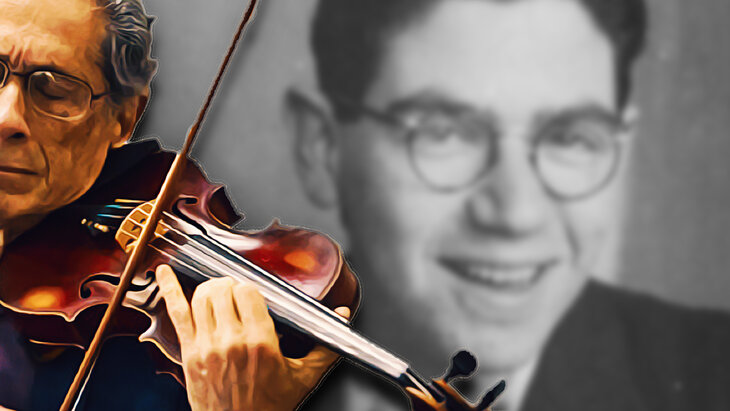This is a story of grief, hope, family and friendship that transcends time and space. It begins on Sept. 23, 1943, when a gentle 18-year-old Dutch Jew named Abraham (Bram) Rodrigues is murdered in Auschwitz.
The Nazis had caught Bram and his father, Marcel, at a train stop at the border as they tried to flee Holland for the safety of Switzerland during World War II, and sent them to the death camp where 1.1 million other men, women and children were murdered.
Before his bid for freedom, Bram had entrusted his best friend Johnny de Haan with his beloved violin. Little could Bram imagine that his precious instrument would live on long after he had perished.
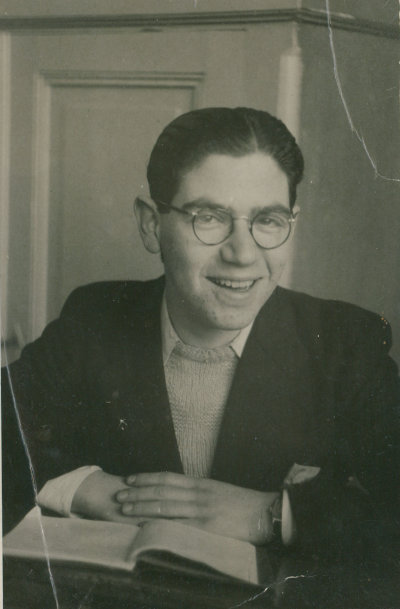
Bram’s older sister, Sipora Rodrigues-Lopes Groen, also survived and would cry many years later whenever telling her five children about their late uncle. But other than having a great-nephew named after him, Bram had no legacy.
All that changed in 2019.
A Note of Mystery
On the eve of Purim, Bram’s nephew David Groen received a mysterious note on his Facebook page:
Dear Mr. Groen,
Might you be the closest living relative to Bram Rodrigues born 15 October 1924 and died in Auschwitz in 1943? Bram was a very close friend to my father.
The message was from Wim de Haan — Johnny’s son.
“I immediately knew this was about my uncle. I asked Wim how he had found me. He told me originally through my website, Holland’s Heroes, and subsequently the Yad Vashem archives,” recalls David.
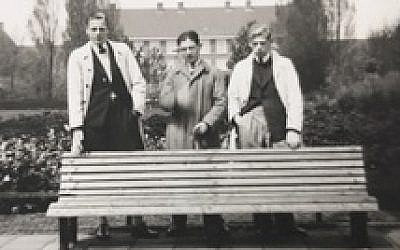
David’s website promotes “Jew Face,” his book about his parents’ story of love and heroism in Nazi-occupied Holland. The 60-year-old author pays tribute to survivors and heroes, and to the more than 100,000 Dutch victims of the Holocaust. They represented three-quarters of the total Dutch Jewish population.
That Purim in 2019, as David was enjoying a festive holiday meal with friends, he received a follow-up email from Wim that moved him to tears.
Wim’s father, Johnny, and Bram had played in a band together as youths. After Johnny died in 2012, Wim inherited his house. There, Wim found Johnny’s guitar and Bram’s violin.
 “I mentioned that I mounted my father’s Gibson against the wall. After reading (Johnny’s) diary I felt that those two instruments belonged together. Therefore I intended to mount the violin next to the guitar, but now I ran into you, together with your brothers and sisters the inheritor of the violin. Well David, this is my story, the story of my father and his good friend Bram.”
“I mentioned that I mounted my father’s Gibson against the wall. After reading (Johnny’s) diary I felt that those two instruments belonged together. Therefore I intended to mount the violin next to the guitar, but now I ran into you, together with your brothers and sisters the inheritor of the violin. Well David, this is my story, the story of my father and his good friend Bram.”
Wim made it clear he wanted Bram’s descendants to have the violin.
Instinctively, David knew the sincere gesture merited more than a trip to Holland and quick handover of the violin.
Harmonious Connections
Four months after their initial emails, David and Wim honored their uncle and father, respectively, in a summer ceremony in Huize Frankendal, a 17th-century country estate in the same neighborhood of Amsterdam where the Rodrigues and de Haan families lived in 1943. More than 60 people attended, including representatives from the Israeli Embassy, Friends of Yad Vashem and the United States Holocaust Memorial Museum. Family and friends from America, Belgium, Israel and Holland included descendants of Lubertus and Geeske te Kiefte, righteous gentiles who provided a safe haven for Sipora Groen — Bram’s sister and David’s mother — for the last 16 months of World War II.
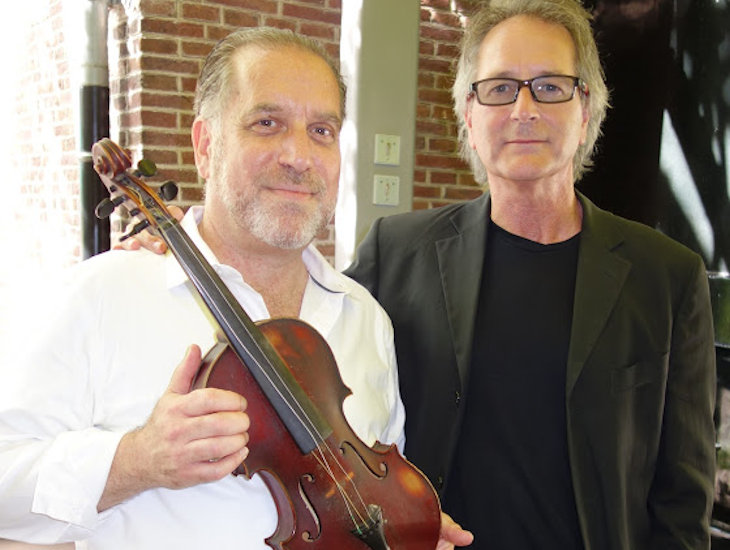
The trip to Holland proved very emotional, and not only because of the violin’s return. David walked in the Jewish neighborhood where his mother and uncle had lived as children with their widowed father. David wept at the former site of the nurses’ quarters of the Nederlandse Israelitsche Ziekenhous, or Dutch Israeli Hospital, where his mother had practiced as a nurse.
There, his father, Nardus Groen, had rescued Sipora from almost certain death at the hands of the Nazis. In the final raid, they were clearing out the hospital of all Jews.
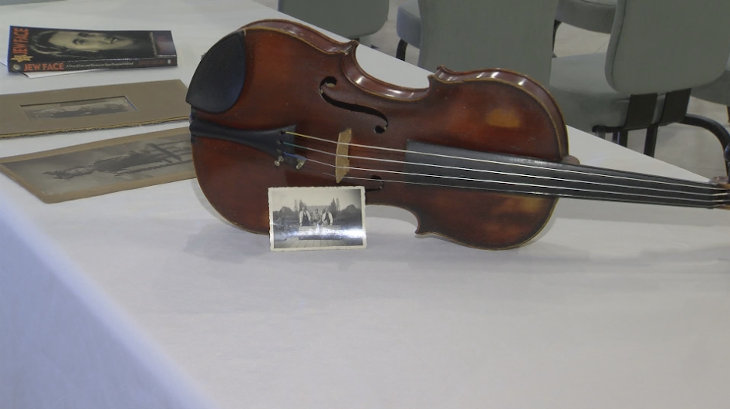
“If my mother would not have followed my father at that point, I wouldn’t be here,” David told Aish.com. “That was a very powerful moment.”
He adds: “My father saved my mother’s life during the war, and my mother saved my father’s life every day after the war. At his funeral, I said the only thing he was afraid of was being without my mother.”
Saving Bram from Obscurity
David brought the violin back home to the United States, where he and his siblings had it restored. In December 2019 it yielded a melody for the first time in 75 years. Appropriately, it was the “Schindler’s List” theme by John Williams. Ken Sarch played Bram’s violin in performance at Chabad of South Palm Beach.
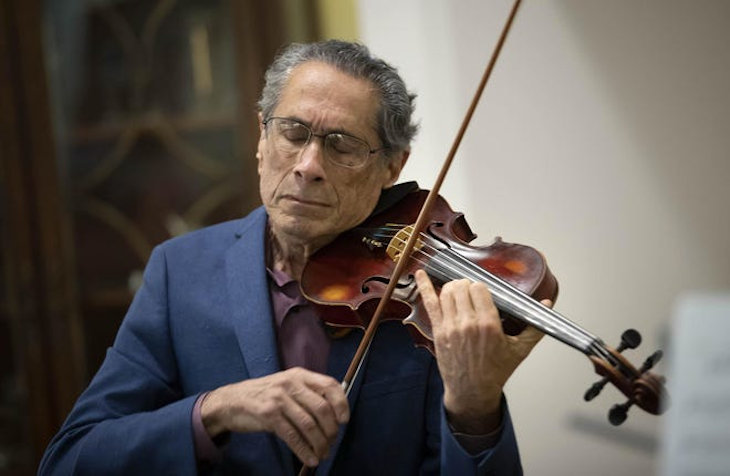
“I want to continue doing presentations with the violin in which it’s played and I tell the story,” says David, who is committed to honoring Bram’s legacy and the story of Johnny de Haan’s great act of friendship.
Invoking Bram and the cherished violin, David observes: “When you find one person whose story tells you what this was all about, it’s really powerful.”
[Published on Aish.com, August 29, 2022]

